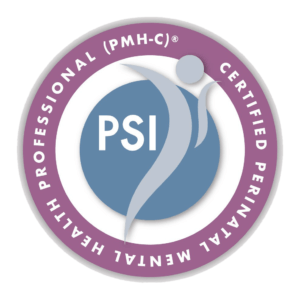
Imagine a family as a team. Just like any team, sometimes family members face challenges in understanding each other and working together smoothly. That’s where family therapy comes in. It’s like having a coach for your family. This coach, who is a trained therapist, helps everyone in the family talk to each other, understand each other’s feelings, and solve problems together.
It’s not about deciding who’s wrong or right, but about finding ways to make your family happier and stronger. In this article, we’ll explore how this journey can help save and strengthen your family relationships.
The Importance of Relationships in Our Lives
Relationships, especially within families, are like the roots of a tree. They ground us and give us a sense of belonging. When our family relationships are strong and healthy, we feel supported, understood, and connected.
These relationships are crucial for our emotional and mental well-being. They shape our experiences, mold our personalities, and influence our perspectives.
A loving and stable family environment can boost your confidence and help you face the world with positivity.
Defining Family Therapy: What It Is and Isn’t
Family therapy is a type of psychological counseling that helps family members improve communication, resolve conflicts, and deepen family connections.
It’s a collaborative process involving a qualified therapist and family members.
Unlike individual therapy, which focuses on the individual’s issues, family therapy considers the family as a whole. It’s not about pointing fingers or placing blame. Instead, it’s about:
- Understanding each other’s perspectives
- Resolving conflicts
- Fostering a supportive family environment
Family therapy isn’t a quick fix or an instant solution. It’s a journey of understanding, empathy, and growth. It’s not only for families in crisis but also for those who wish to strengthen their bonds and improve their dynamics.
The therapist acts as a neutral facilitator, guiding discussions in a way that respects each family member’s feelings and perspectives.
Common Issues Addressed in Family Therapy
Family therapy can address a wide array of issues affecting the family unit. Some common issues include:
- Communication Problems: Misunderstandings, lack of effective communication, or negative communication patterns that lead to conflicts.
- Behavioral Problems in Children and Adolescents: Issues like disobedience, school difficulties, or social challenges.
- Marital Issues: Conflicts between spouses, including infidelity, financial problems, or differences in parenting styles.
- Mental Health Disorders: When a family member’s mental health condition, like depression or anxiety, impacts the whole family.
- Grief and Loss: Coping with the death of a family member or significant changes such as divorce.
- Substance Abuse: Dealing with the impact of a family member’s substance abuse on the entire family.
- Adjustment to Major Life Changes: Relocation, job loss, or welcoming a new family member.
In family therapy, these issues are not viewed as isolated problems of one person but as patterns that affect and are affected by the entire family system.
The therapist helps the family understand these patterns and work together to create positive changes.
When to Seek Family Therapy?
Here are some scenarios where family therapy might be particularly helpful:
- Persistent Conflict: If your family experiences ongoing arguments and conflicts that you’re unable to resolve.
- Major Life Transitions: Big changes like moving to a new city, welcoming a new family member, or dealing with the loss of a loved one.
- Behavioral Issues in Children: If a child or teenager is exhibiting behavioral problems at home or school.
- Mental Health Concerns: If a family member is struggling with mental health issues like depression, anxiety, or an eating disorder.
- Substance Abuse: When a family member is dealing with addiction.
- Communication Breakdown: If family members find it difficult to express their feelings, misunderstand each other often, or feel like they’re not being heard.
- Blended Families: Combining families can present unique challenges.
- Feeling Disconnected: Sometimes, families may feel emotionally disconnected or distant from each other.
- Traumatic Experiences: If your family has gone through a traumatic event, such as a natural disaster, accident, or any form of abuse.
- Parenting Challenges: Parents facing difficulties in managing child-rearing responsibilities, handling discipline, or agreeing on parenting styles.
- Sibling Rivalry: Intense or ongoing conflicts between siblings, which disrupt family life and cause distress.
- Health-Related Issues: Chronic illness or disability of a family member can create stress and require adjustments in family roles and dynamics.
- Cultural or Inter-Generational Conflicts: Differences in cultural backgrounds or clashes between generations.
- Pre-Marital or Pre-Adoption Counseling: Families considering significant steps like marriage or adoption.
Even if there are no pressing issues, some families opt for therapy as a way to maintain healthy dynamics, much like regular health check-ups.
Mental Health Services in Phoenix, AZ
Family therapy is a powerful tool that can bring families closer together. It’s like a bridge that helps family members cross over misunderstandings and conflicts to reach a place of mutual respect, understanding, and love. Remember, seeking help through family therapy is a sign of strength, not weakness. It shows a commitment to making your family’s bond stronger. Family therapy can be a valuable step towards a happier, healthier family life.
At My Buoyant Health, we encourage patients and their families to seek family therapy when necessary, so they can thrive. While our experts don’t offer family therapy directly, we support mental health and can help guide you toward family therapy resources. With us, you can rest assured your family will have a compassionate team of healthcare providers as your partners through the entire journey. Call us today at (602) 510-6582 if you have questions about our mental health services. Alternatively, you can schedule a visit with the best mental health experts near you with our online appointment request form.




